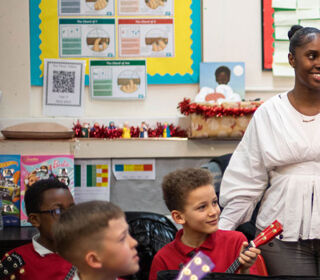
Advice

Completing a placement is an excellent way to put what you have learned on your course into practice and develop new skills relevant to your future career. We've put together all the information you need to know about placements and how you can make the most of them.
The work experience you will get whilst on placement can be a significant advantage when seeking full-time employment. Many of our students end up returning to the company where they undertook their placements as permanent employees after they graduate!
What are the different types of placement?
You may be required to undertake a placement as part of your course or choose to go out on placement voluntarily during your time at the University.
Some courses, like education and health-related courses, feature mandatory placements in the course. These placements are already set up and are allocated to you based on ease of travel and individual requirements. Mandatory placements tend to be shorter and will complement your curriculum so that you can balance studying and getting the experience you need to work in your chosen sector.
Voluntary placements can be chosen by you, as long as it relates to your course. Taking a voluntary placement is a great way to gain experience and skills in an area you are particularly interested in and build industry connections.
If your course doesn't offer a full placement year option then the majority of these courses will involve work experience modules.
Will I be supported in finding a placement?
For any placement, you will be fully supported by your tutors and the Careers+ Team through lectures, seminars, workshops and one-to-one guidance.
You will be supported with:
- How and where to find a placement
- What placement options are suitable for you
- CVs, applications and interview preparation
Each school has an employability team, who work with you to ensure your placement will be relevant to your course. The employability team:
-
Liaise and work with local and national employers to source and promote opportunities.
-
Provide 1:1 support to students, which includes CV and application advice, running mock interviews and advising on assessment centres and psychometric tests.
-
Run group sessions for students and organise sessions with employers on campus.
When does placement take place?
If your placement is a mandatory part of your course then your placements will be pre-arranged and worked into your timetable. Depending on your course, you could have placement every term, every year or just once during your degree.
If your placement is voluntary then you may choose to do a full placement year, also called a sandwich year or a year in industry. This means taking a break between year 2 and year 3 of your course to work in industry for the year.
If you don't want to take a full year away from your studies, then summer placements or internships are also a great option.
What kind of companies can I work for on my placement?
Our students have enjoyed placements with companies like the BBC, Cisco, IBM, NHS, Microsoft, Dolby, Selfridges, ASOS and more. We maintain relationships with local and global companies that offer our students placement opportunities every year. If you want to volunteer with a company that we've never worked with before, then our Careers+ Team can help you reach out to them and apply to any opportunities they have.
What happens when I'm on placement?
On placement, you'll be representing BCU and showing off all the knowledge you've learnt on your degree so far. You can develop skills needed in your chosen industry, make connections and figure out whether this is the right career for you.
During your placement, you may be asked to submit pieces of work for your course and still check in regularly with your tutors so they can see your progress and keep in touch.
Why should I do a placement?
By doing a placement you'll be able to:
- Experience what it's like to work in a particular sector or role and see if it's the right one for you.
- Earn some money if your placement is a paid opportunity.
- Travel to a new city or even a new country if you choose to go abroad.
- Make industry connections that you can keep in touch with, either on a friendly or professional basis.
- Add new skills and experiences to your CV and LinkedIn that demonstrate your work to employers.
- Gain industry knowledge that will help you complete your final project and final year at university.
- Find out if any roles are available for you to apply to once you graduate.
Will I be offered a job at the end of my placement?
Whilst we can't guarantee that completing a placement will get you a job offer, employers are often impressed by students completing placement and offer them a job when they graduate or invite them back to interview.
Either way, if you make the most of your placement then you'll still have new skills and connections you can use to apply to a graduate job.